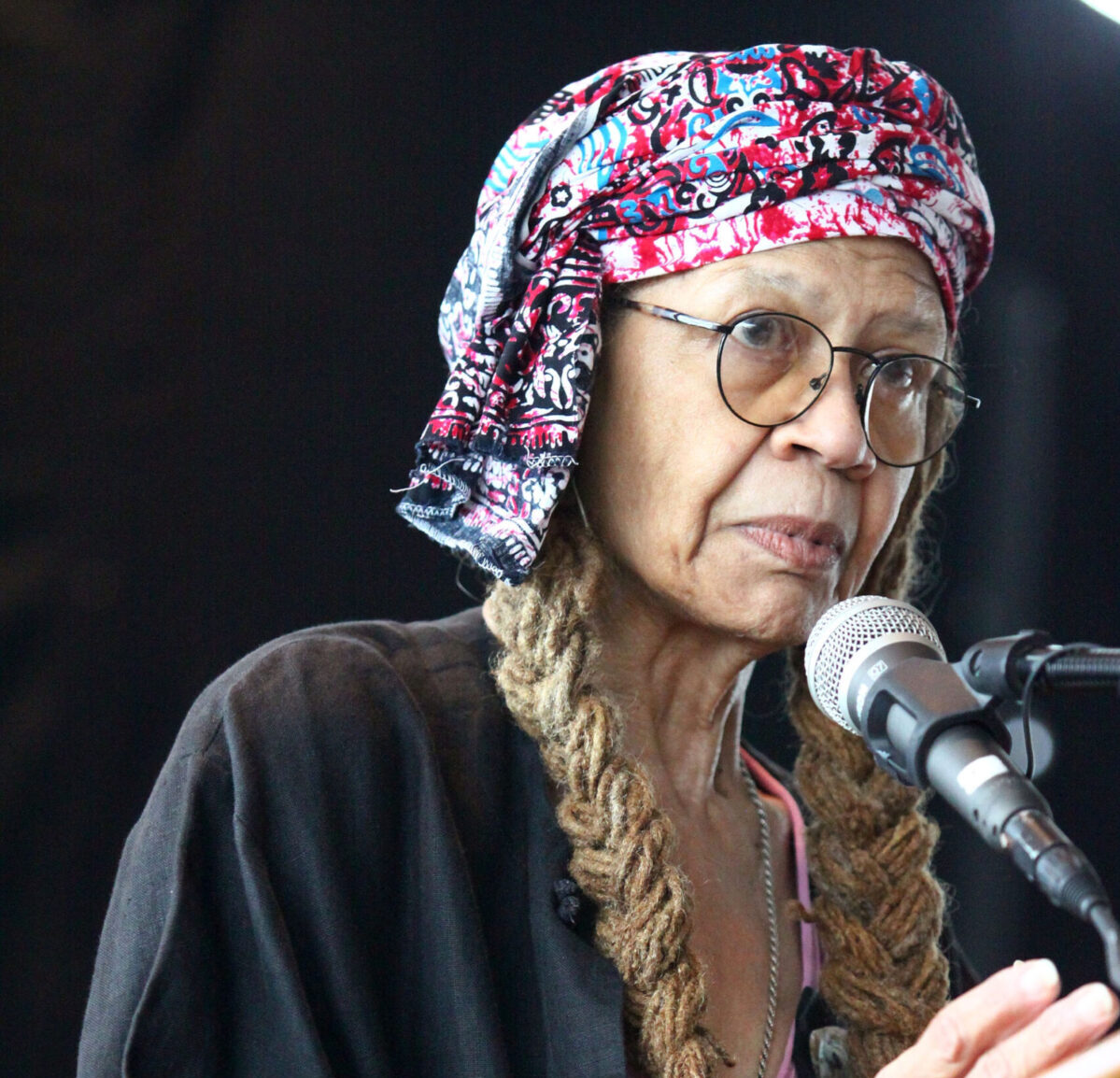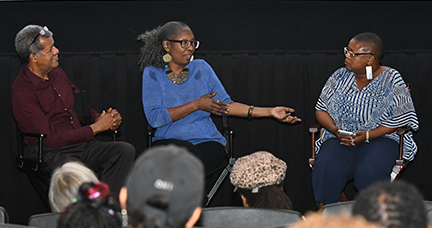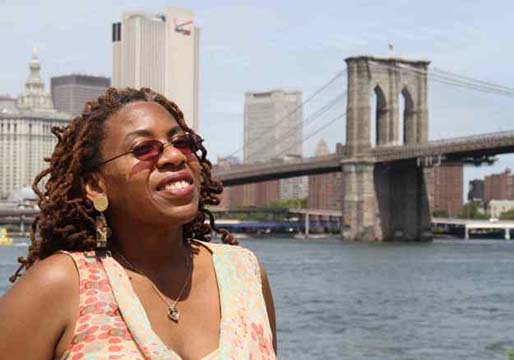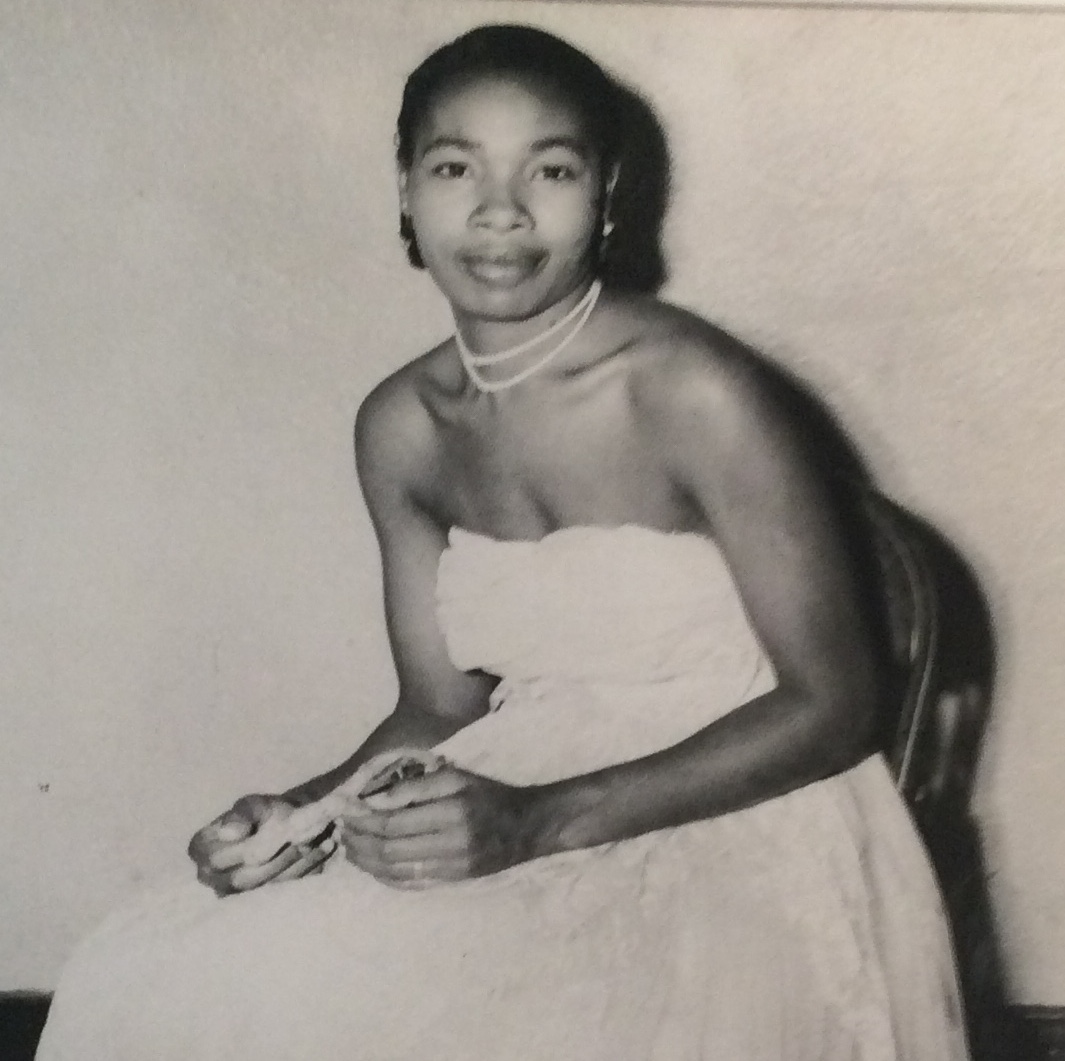Interview
Q&A: Eco-Scientist Gillian Bowser, PhD on her Pioneer Filmmaker Mom Pearl Bowser

From These Roots: Two Women, Shared Missions
Carolyn Butts, founder of Reel Sisters, contacted Our Time Press early last week to make sure we were keeping track of the tributes to the great filmmaker Pearl Bowser (June 25, 1931 in Harlem – September 14, 2023 in Brooklyn). We were on deadline amid Earth Month and other stories.
Yet, setting a page aside was not a stretch for Pearl, the former Brooklynite, who was known throughout the film world as the Godmother of Independent Black Filmmakers. She also was a friend to OTP publisher David Greaves’ stepmother Louise and father, William Greaves, called for decades the Dean of Independent Black Filmmakers.
The Greaves preceded Pearl in death. Carolyn put us together with Gillian Bowser, Mrs. Bowser’s eco-scientist daughter, an Associate Professor, Ecosystem Science & Sustainability at Colorado State University who came in to host the tributes.
Among Ms. Bowser’s specialties are studying and teaching the impact of Climate Change on communities and developing citizen scientists. We saw the mother-daughter connection immediately.
Within minutes, Carolyn connected us an Professor Bowser took the morning of the next day to write the answers to our questions.
We should note that Harlem-born Pearl Bowser who lived in Brooklyn most of her life until her death last fall, was a film scholar, author, archivist, educator, filmmaker, film preservationist and independent film distributor. In memoriam to her, Chazz Ebert wrote, that Mrs. Bowser brought a “ crucial spotlight to Black filmmakers” and was committed to “ensuring the history of African American filmmakers would not be lost to the ages.”
Mrs. Bowser preserved the histories, stories and thousands of reels produced by many Black filmmakers whose great works would have been forgotten, lost, or, for that matter, never enjoyed the stature of greatness.
What also is historically significant, she appears to have been “the first woman …” in every field in which she is credited as pioneering, earning experience from her own design, without benefit of career role models to follow. She followed her heart and her gut.
In the following Q&A Tribute to both women, Gillian shared her fond appreciation and respect for her “awesome” mother who she credits for blazing the trail for her successes in academia. As Mother’s Month approaches, we salute Pearl Bowser’s majesty, and Professor Gillian Bowser for taking the time to share her memories.
Bernice Elizabeth Green: In what ways did your mom influence your vision of the world?
Professor Gillian Bowser: My mother grew up in Harlem and was raised, along with her six older brothers, by her mother. She and my father, LeRoy, were always deeply engaged in the community, so my sister Jora and I grew up marching with the Women Strike for Peace Movement and immersed in civil rights events, grassroots activism, and both local and national politics.
Everything we did, from tree planting in areas of urban blight to participating in town hall meetings, was always about addressing community issues and listening to community voices.
My mother certainly never overlooked a teachable moment, whether about the edible plants along beloved trails in the Shawangunk Mountains or about how to cook, behave, or apply oneself even in the face of adverse circumstances.
Most crucially, I learned from her the importance of being a lifelong learner, staying curious, following one’s instincts, working hard to gain fresh insights, and sharing one’s knowledge and encouraging others on their paths.
As the first in my family to earn a PhD, I stood on her shoulders to attain that goal. My father had passed away by then, but she was there with other family to celebrate.
Many of the women in my family also seem to be teachers. My aunts worked at Head Start, teaching pre-kindergarten students, and taught elementary school. Initially though, I never had a vision to be a teacher.
I wanted to be a medical illustrator after going to LaGuardia (then called the High School of Music and Art). At M&A, I was a member of the Science Club, and my interest snowballed from there. To this day, I integrate photography and illustration into my field work.

OTP: In your role as Trustee of your mother’s voice and legacy, do you see that perhaps she was not given her full credit for influencing the global film world?
Gillian: She developed the art of collecting and preserving Black film, and the legacies of Black filmmakers, before the need for doing so was adequately recognized.
Beyond her work as an archivist and historian, my mother’s legacy is mostly as a visionary distributor who gave voice to Black independent filmmakers, especially from Brooklyn.
It is of course hard to overstate the importance of that contribution. “The boom was really an echo” was her motto, reminding the community that Black filmmakers told the stories of Black communities through their own eyes and to Black audiences as far back as the early 1900s, beginning with Oscar Micheaux and the early race movies.
My mother’s mission was to remind us of the vital, ongoing need for Black filmmakers to tell Black stories on issues of importance to Black communities.
As a distributor, she gave voice to these stories by sharing them in public libraries, in film festivals on the international stage, and through encouraging young filmmakers to realize their own visions.
OTP: What can our mothers in Brooklyn (and beyond) learn from your mother and her work?
Gillian: The community in Brooklyn still faces challenges like those prevalent when I was growing up: drugs (the opioid crisis today; crack back then), poverty, and ever-increasing income disparities, yet the definitions of community are more challenged today with increased income disparities in areas previously more united, necessitating visionary and creative methods for ensuring the community is heard.
Films in the Pearl Bowser Audiovisual Collection at the Smithsonian National Museum of African American History and Culture highlight these issues while documenting the importance and impact of the community coming together to make their voices heard.
My mom was an avid reader starting in childhood and would want to see a love of reading passed down to children today.
Finding community takes more effort in our high-tech world, as attention is fragmented by our small screens, but she understood the opportunity, power, and reward in being able to connect, and stay connected, across geographical divides.
Also, digitization of media in my mother’s collection at the Smithsonian is allowing the next generation to see rare archival footage, giving the community a real sense of all the complexities behind trying to tell stories and, to paraphrase the late Kathleen Collins, one of the first Black women to direct a feature film, to make the ordinary extraordinary!
OTP: What were some early memories growing up in your Brooklyn home?
Gillian: The very first book that I remember is J.R.R. Tolkien’s The Hobbit and our favorite chapter was “Riddles in the Dark,” which my sister Jora and I would make my poor mother read repeatedly! I credit this chapter to my love of drawing (mostly dragons) which led me to LaGuardia and onward to science.
The Brooklyn Public Library’s Brooklyn Heights branch on Cadman Plaza is a memory. The 1962 library was recently demolished, and a new library was built to replace it. I visit the new branch location sometimes, which still houses the old bas-relief sculptures from the old façade and still love to work in the Rose Main Reading Room of the New York Public Library.
Mary Poppins! We saw that movie at the Duffield on Fulton Street in Downtown Brooklyn so many times that when we started singing along with the film; my mother got embarrassed! We also had a projector at home and on rainy days my mother would show old Looney Tunes cartoons to me, Jora, and our friends from the block. Several contained offensive depictions, which she would discuss.
My friends also remember that she screened D.W. Griffith’s controversial Civil War epic, The Birth of a Nation, when she deemed us about old enough to grasp it.
OTP: Do you recall the moment her awesomeness was revealed to, or discovered by, you.
Gillian: I cannot remember a time when I was not in awe of my mother.
She was very tall, modern, and elegant, always active in the community, and forever sharing newfound knowledge. It was not until she was bedridden in her late eighties that she confessed to being a naturally reserved person who worked hard to stop being self-conscious about her stature.
She could do anything she put her mind to for family and community, from cooking huge, amazing soul food meals to wrangling audiences for screenings of Black films.
That was her magic ability — to pull people in and show them the extraordinary revealed in the ordinary lives and struggles of Black people, as told by Black filmmakers in a continuous line from the silent era to the present day.
More about Gillian Bowser:
Bowser has worked as a wildlife biologist and ecologist for the U.S. National Park Service in Yellowstone, Grand Tetons, Joshua Tree and Wrangell St. Elias, and was a Science and Diplomacy Fellow with the American Association for the Advancement of Science in 2011. She was also elected as a senior AAAS Fellow in 2023 and serves on the executive committee for the International Union of Biological Societies working with the U.S. National Academies of Science. Bowser earned her B.S. from Northwestern University, her M.S. from the University of Vermont, and her Ph.D. in Biology at the University of Missouri-St. Louis.
And, yes, we extended an invitation to Gillian to come home to Our Time Press– through the marvels of technology — where she can serve in the capacity of adviser to our efforts to expand community awareness of Climate Change and its affects on our lives.








